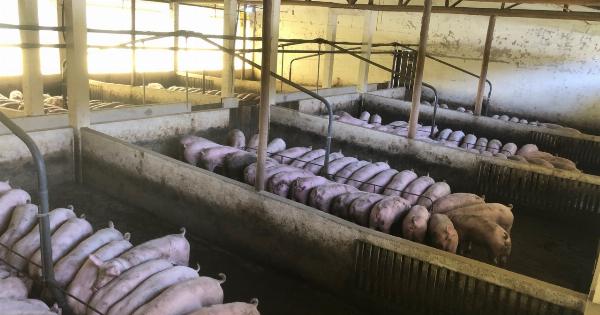When it comes to managing high cholesterol levels, one of the most important steps you can take is to adopt a healthy diet.
Certain foods can significantly contribute to increased cholesterol levels and should be consumed in moderation or avoided altogether. In this article, we will explore the 6 worst foods for high cholesterol and explain why they should be avoided.
1. Trans Fat Laden Foods
Foods that contain trans fats are known to be the worst culprits when it comes to raising cholesterol levels. Trans fats are artificially created by adding hydrogen to liquid oils to make them solid at room temperature.
They are commonly found in processed foods such as fried foods, baked goods, and packaged snacks. Trans fats not only increase bad cholesterol (LDL) levels but also reduce good cholesterol (HDL) levels, making them disastrous for heart health.
It is crucial to read food labels and avoid products that list “partially hydrogenated oils” or “trans fats” in their ingredients.
2. Saturated Fat Rich Meats
Consuming meats that are high in saturated fats, such as beef, pork, and lamb, can have a negative impact on cholesterol levels. Saturated fats raise LDL cholesterol levels, which can increase the risk of heart disease and stroke.
To reduce saturated fat intake, opt for lean cuts of meat like skinless poultry, fish, or plant-based protein sources such as legumes and tofu.
3. Full-Fat Dairy Products
While dairy products are generally a good source of essential nutrients, full-fat dairy products can be harmful to cholesterol levels. Whole milk, full-fat cheese, and butter contain high levels of saturated fats and cholesterol.
These fats can lead to the buildup of plaque in the arteries, increasing the risk of cardiovascular diseases. Choose low-fat or fat-free dairy alternatives to get the benefits of dairy without the negative impact on cholesterol.
4. Fried and Processed Foods
Fried and processed foods are often high in unhealthy fats, including trans fats and saturated fats. Fried foods like French fries, fried chicken, and doughnuts not only raise bad cholesterol levels but also increase inflammation in the body.
Processed foods like chips, cookies, and fast food burgers are loaded with unhealthy fats, sodium, and additives that can worsen cholesterol levels. Opt for healthier cooking methods like baking, grilling, or steaming and choose whole foods instead of processed options.
5. High Sodium Foods
While sodium does not directly impact cholesterol levels, excessive consumption of high-sodium foods can lead to high blood pressure, which is a risk factor for heart diseases.
Foods like canned soups, processed meats, and salty snacks are often high in sodium content. It is important to limit sodium intake and opt for low-sodium alternatives or prepare homemade meals using fresh ingredients and herbs for flavor.
6. Sugar, Refined Carbohydrates, and Artificial Sweeteners
Although not directly linked to cholesterol, diets high in sugar, refined carbohydrates, and artificial sweeteners can contribute to weight gain and obesity, both of which can negatively affect cholesterol levels.
Excessive sugar consumption can lead to high triglyceride levels, which are a type of fat found in the blood. Refined carbohydrates like white bread, pasta, and pastries can also increase triglyceride levels and decrease HDL cholesterol.
Artificial sweeteners, often found in diet sodas and processed foods, have been associated with increased appetite and cravings for sugary foods.
Conclusion
By avoiding or reducing the consumption of these high-cholesterol foods, you can better manage your cholesterol levels and improve your overall heart health.
Incorporate a well-balanced diet that includes fruits, vegetables, whole grains, and lean proteins to promote healthy cholesterol levels. Remember to consult with a healthcare professional or nutritionist for personalized advice and guidance in maintaining a healthy cholesterol profile.





























